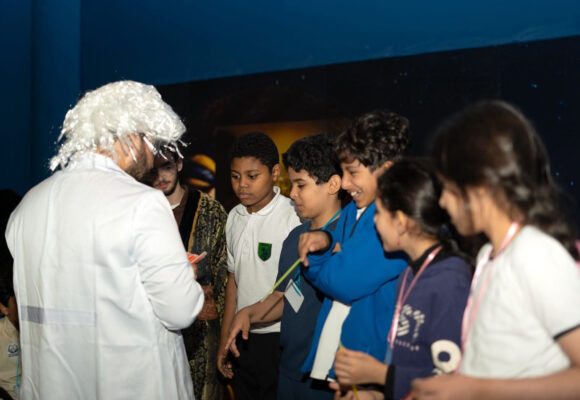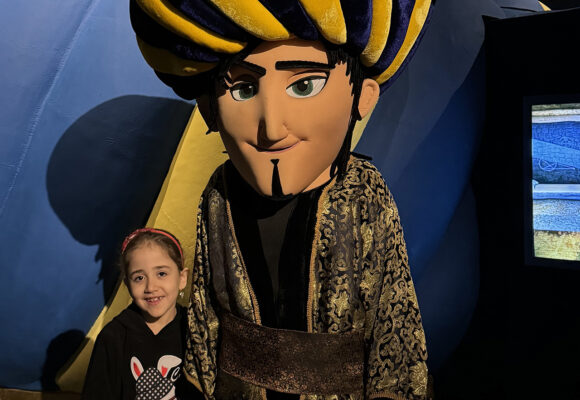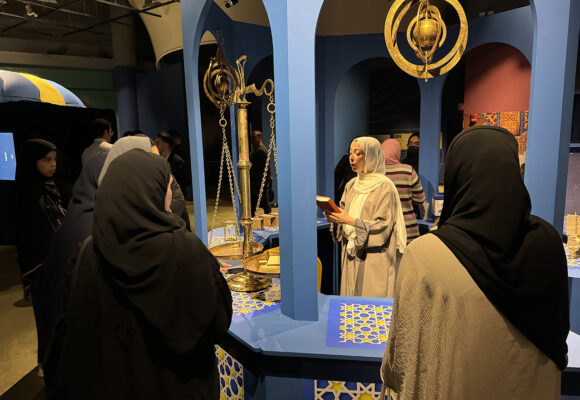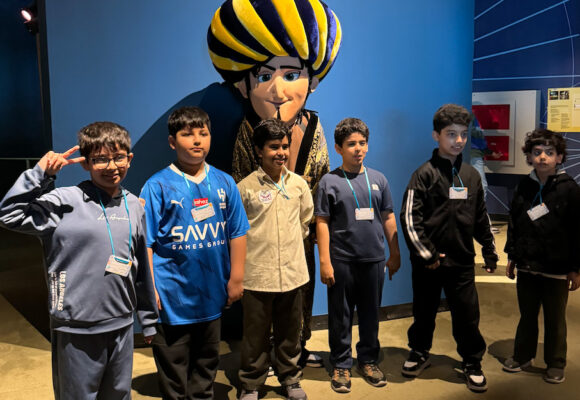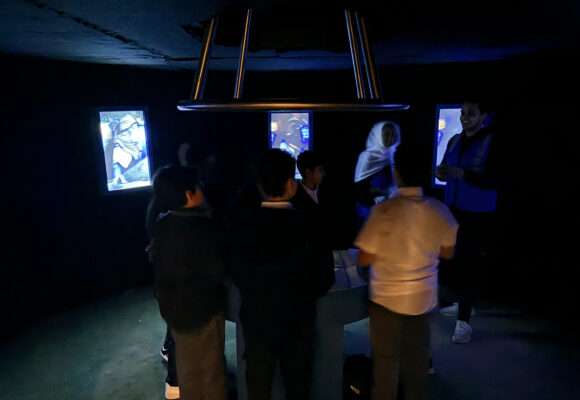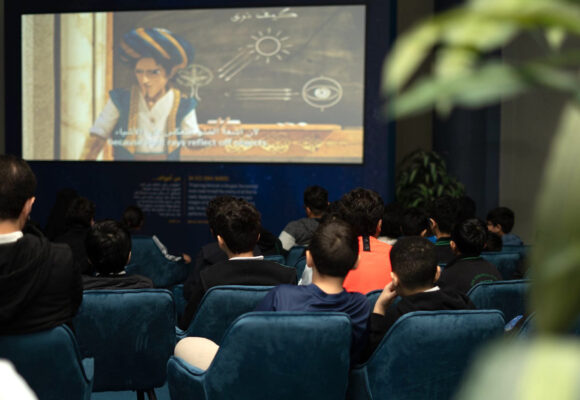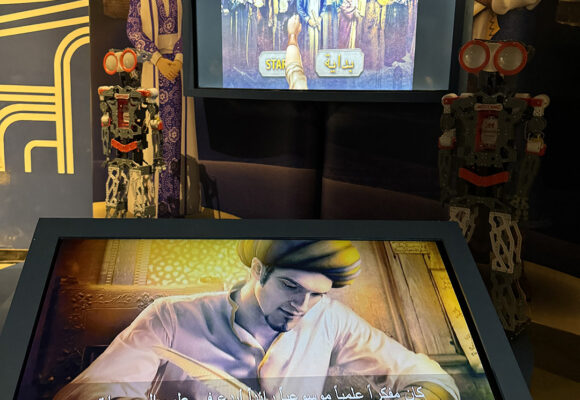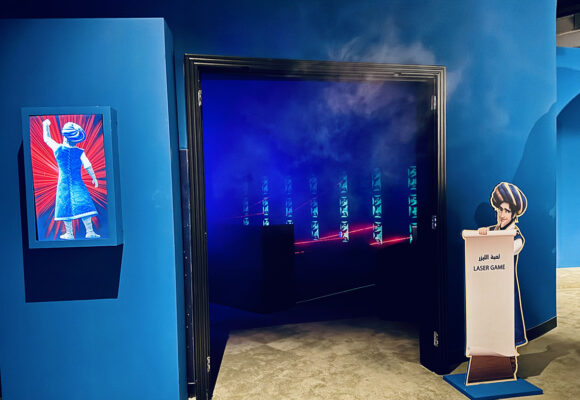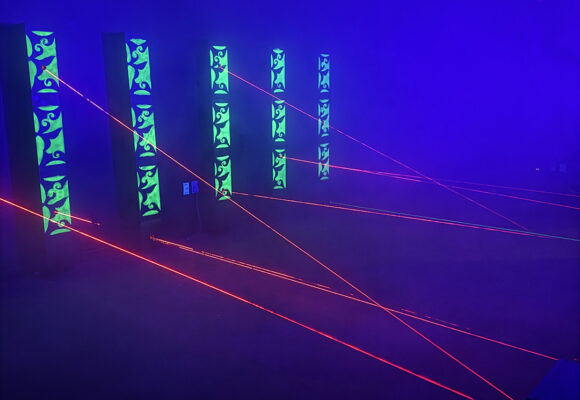Al-Khobar, 9 March 2024: 1001 Inventions, in partnership with the Sharqia Development Authority, SciTech Science Center and Koushan have completed the hosting of “1001 Inventions and the World of Light Festival”.
The festival takes visitors on a journey of discovery uncovering the life and achievements of 11th century Arab pioneer al-Hassan Ibn al-Haytham – The man who discovered how we see.
Considered by many as the ‘Father of Optics’, Ibn al-Haytham made important contributions to the understanding of vision, optics and light. His methodology of investigation, in particular using experiments to verify theory, shows certain similarities to what later became known as the modern scientific method.
The festival made learning fun with over 1,000 sqm of exhibits, Virtual Reality games, live shows, hands-on workshops and a screening of Ahmed Salim’s short film starring legendary actor Omar Sharif.
The festival was produced by award-winning British producer, philanthropist, and social entrepreneur Ahmed Salim, founder of 1001 Foundation and co-founder of 1001 Inventions.
“I’m delighted that we had this opportunity to engage thousands of people in the Eastern Province. SciTech is an important science centre that continues to inspire new generations of young people. I would like to thank all teams that helped make this successful event possible with special thanks to acclaimed architect Dr. Zuhair Fayez.
We created the ‘1001 Inventions and the World of Light Festival’ to promote inclusion by showing our shared scientific heritage and inspire young people to build a better future for our World by introducing them to lost pioneers from the Golden Age of Arabic Science.
I’m delighted that the festival continues to tour the world following our launch in partnership with UNESCO at their Paris Headquarters in 2015. Since then, the educational campaign has engaged with over 50 million people around the world.”
Ahmed Salim
Co-Founder, 1001 Inventions
Founder, 1001 Foundation
BOOKING: To book this festival or find out how you can organise similar events in your city, science centre, museum or school PLEASE CONTACT US
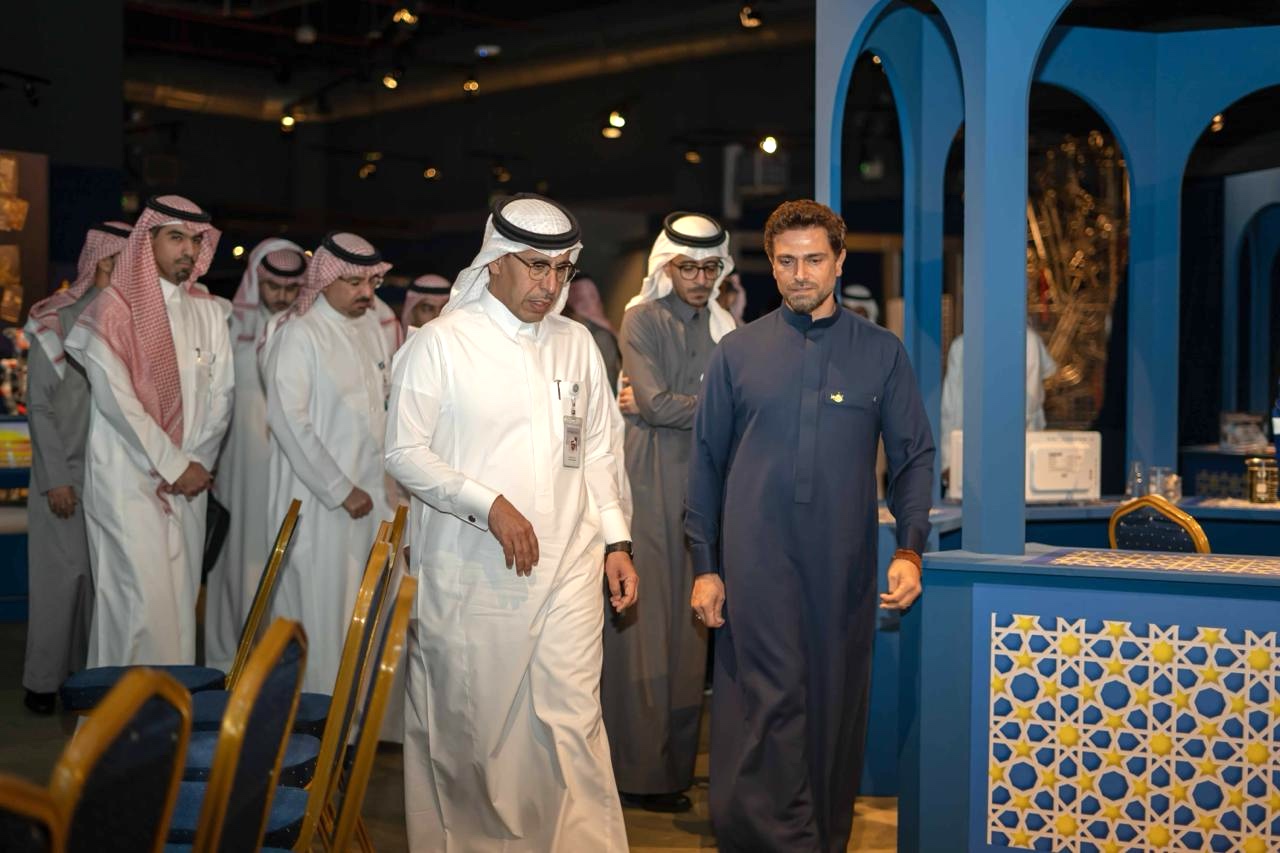
Omar Al-Abdulatif, CEO of Sharqia Development Authority (left), with Ahmed Salim, producer of 1001 Inventions and founder 1001 Foundation (right)
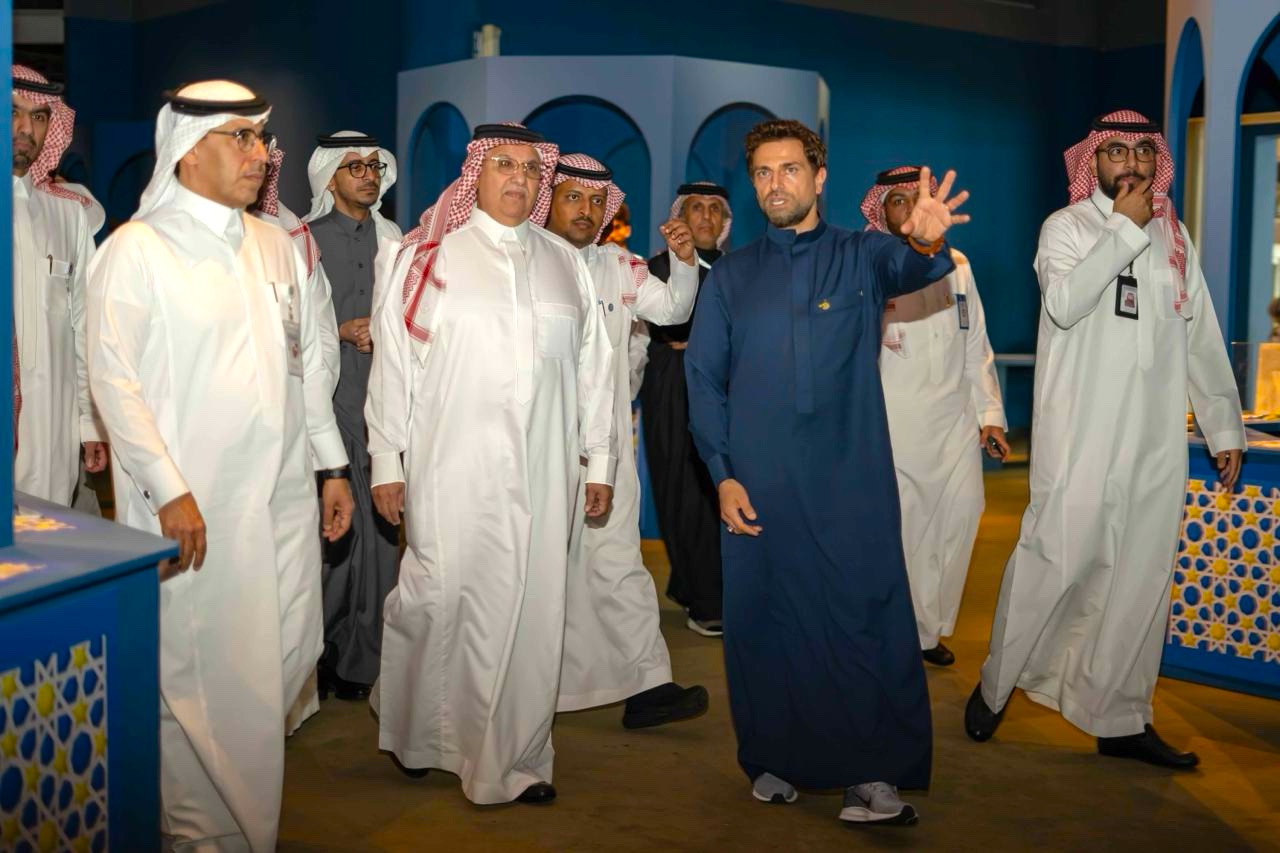
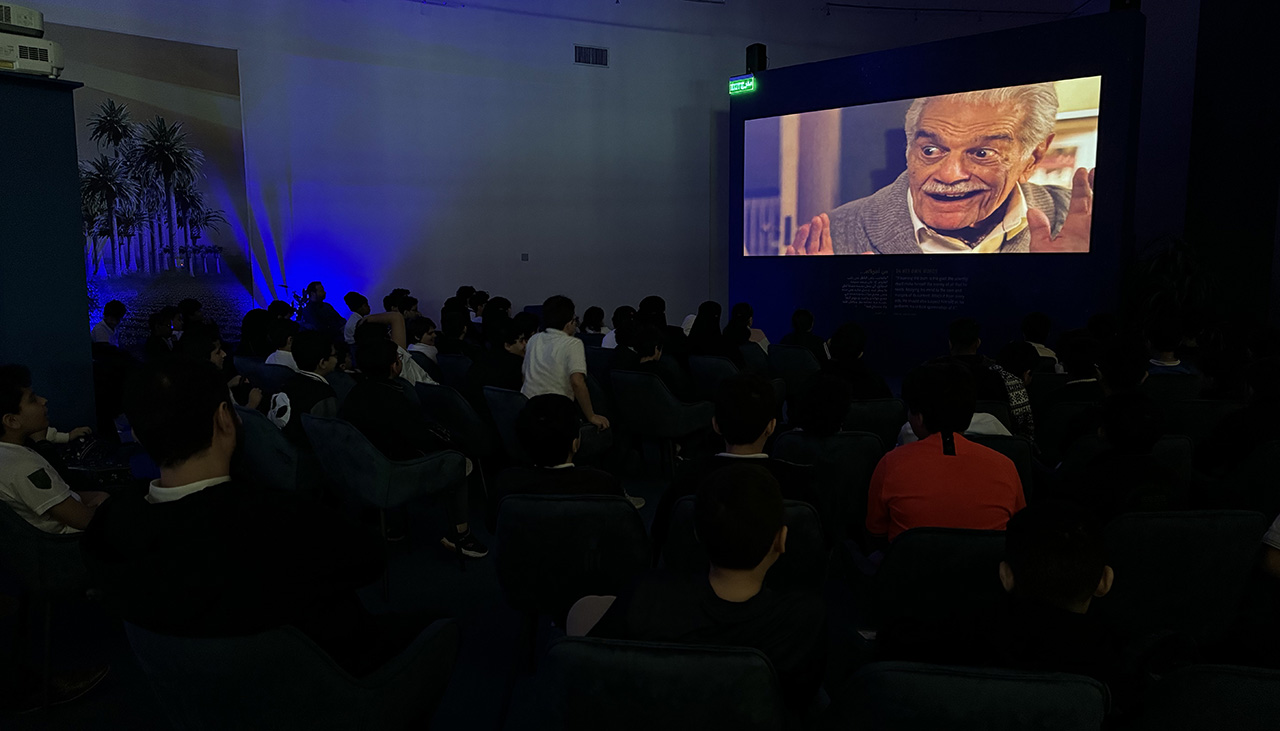
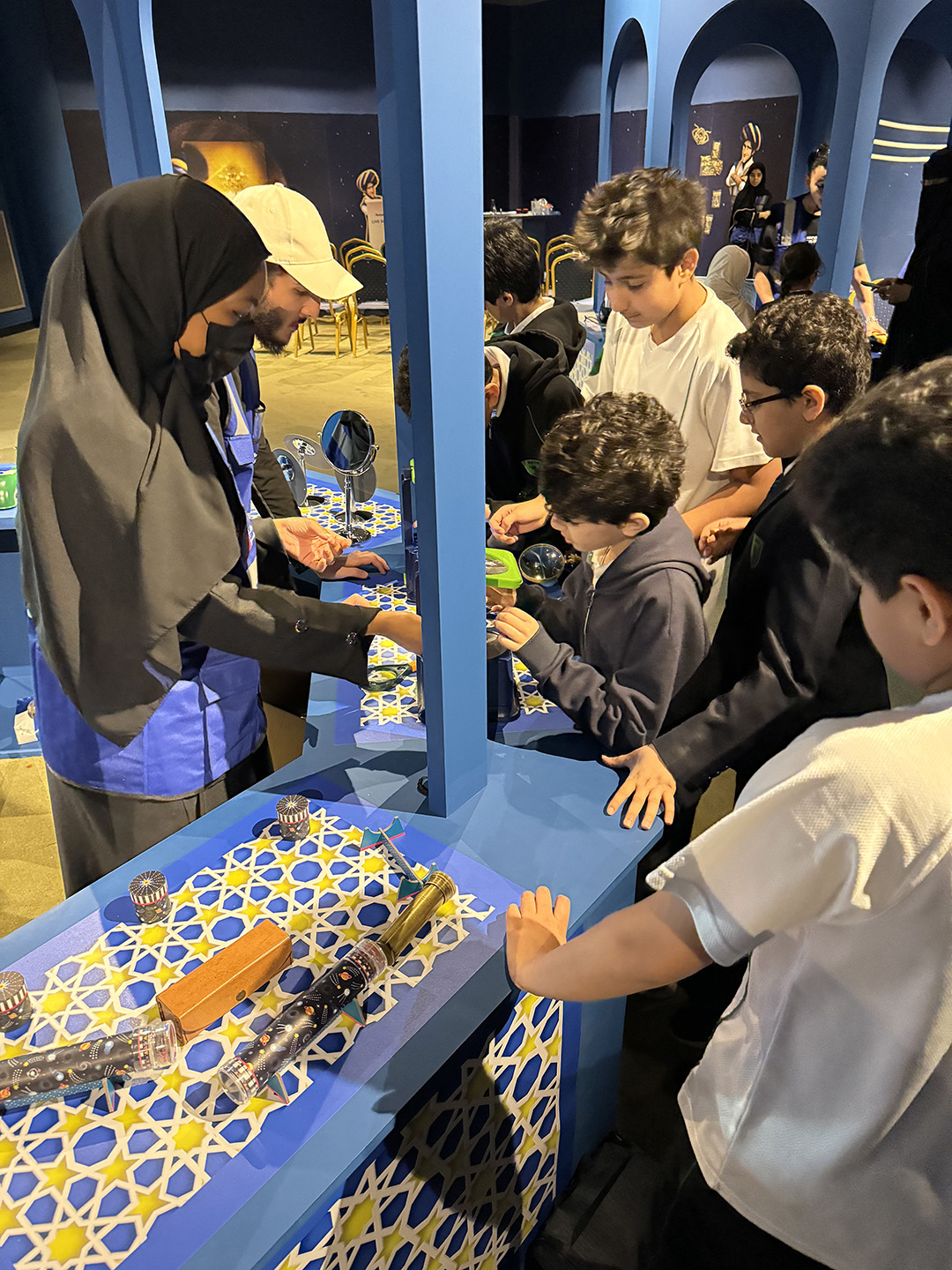

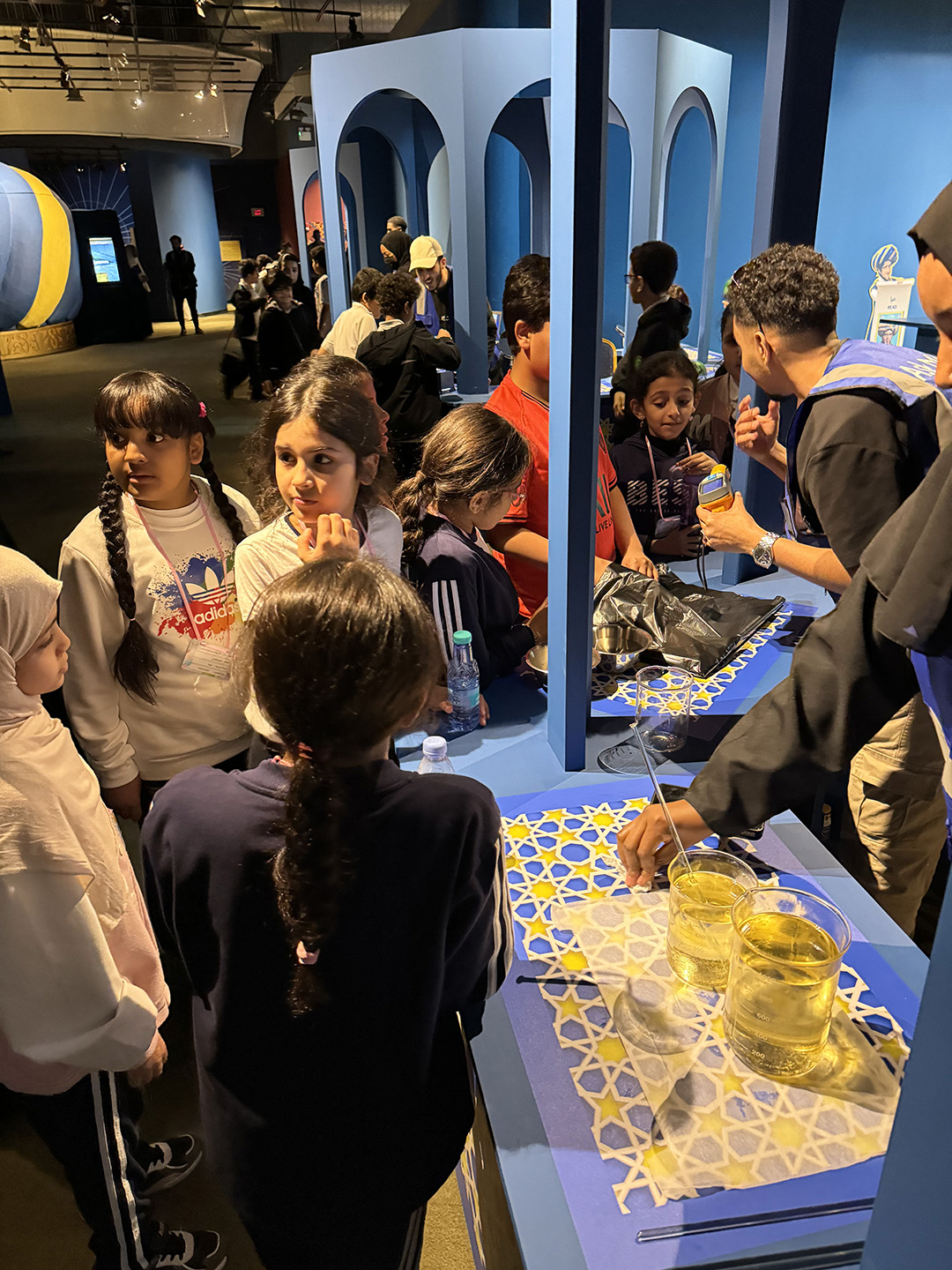
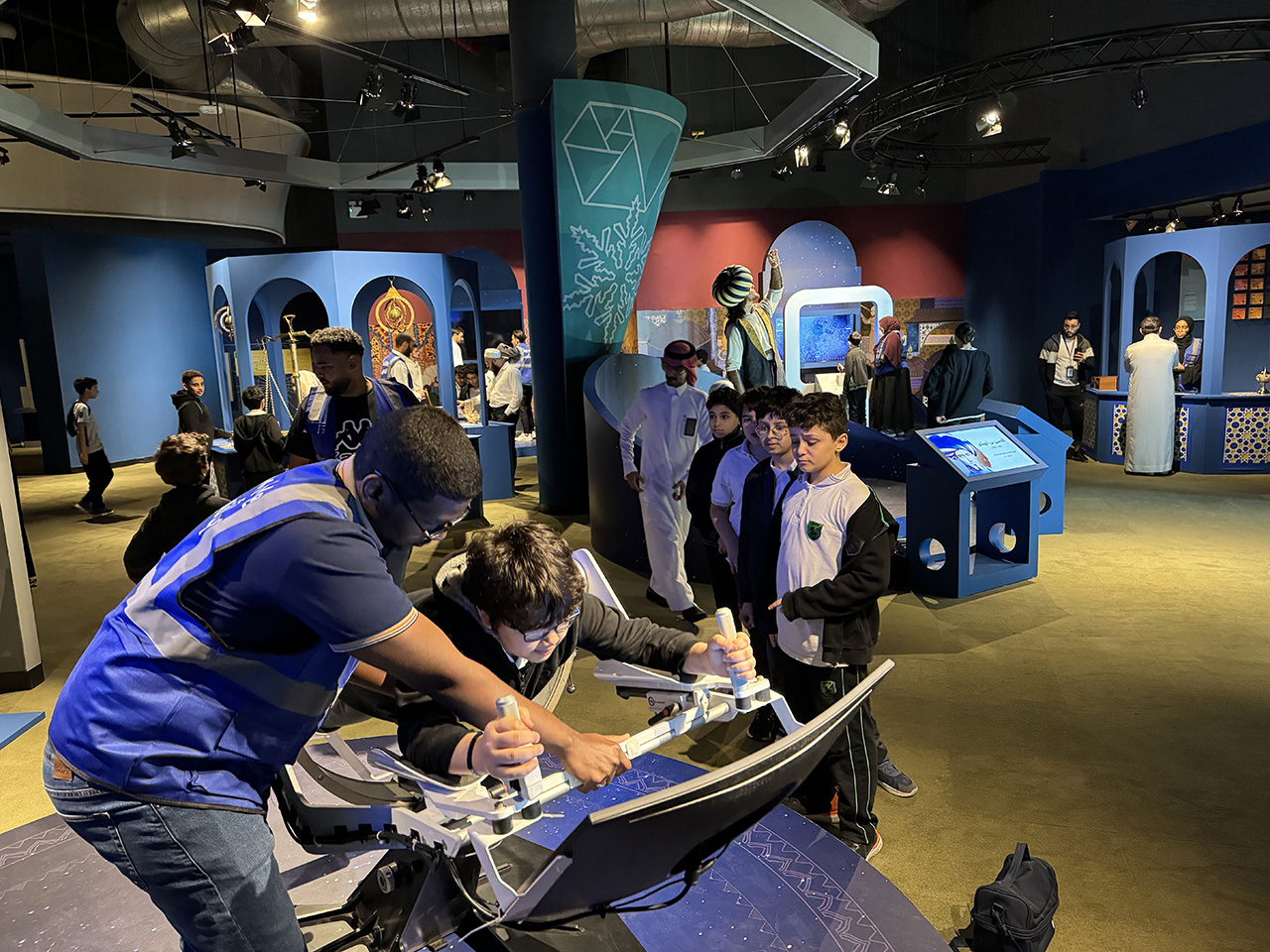
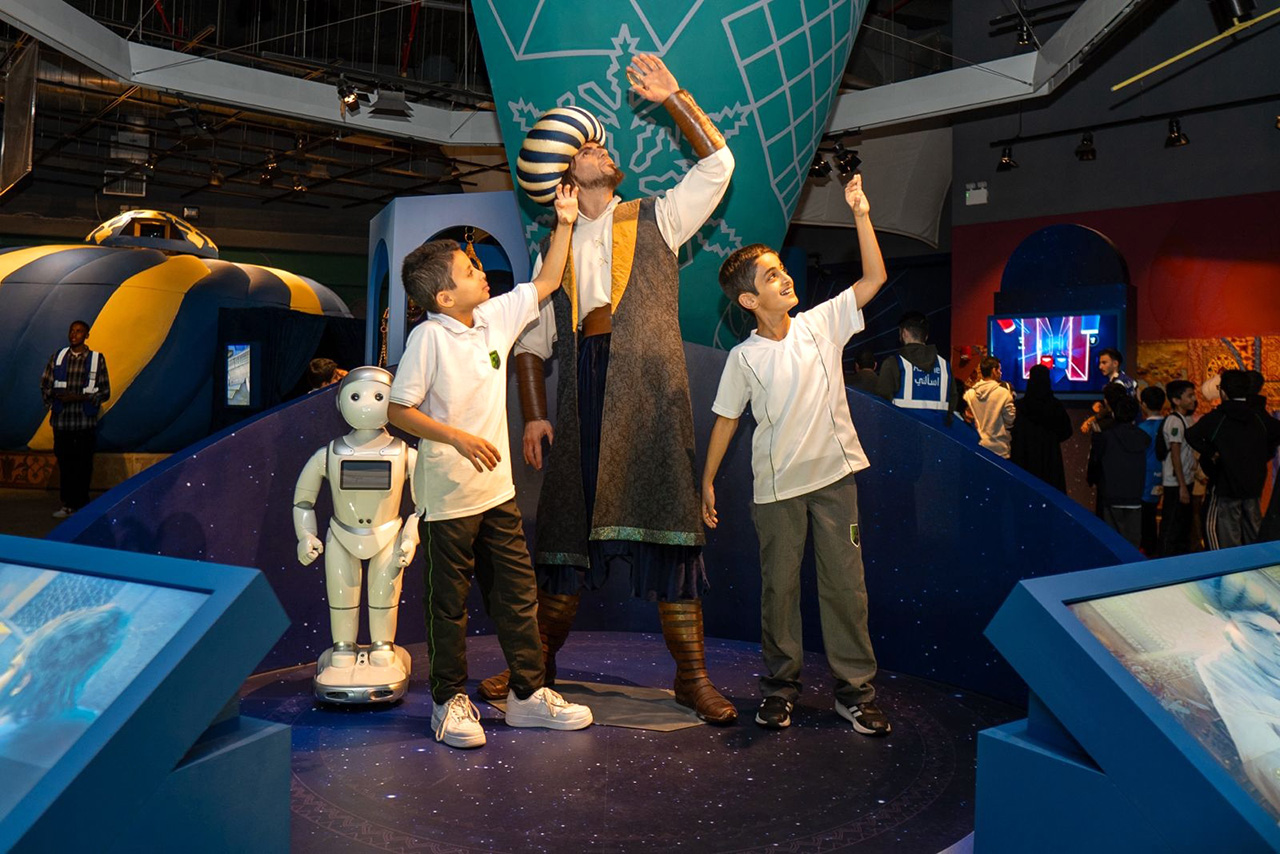
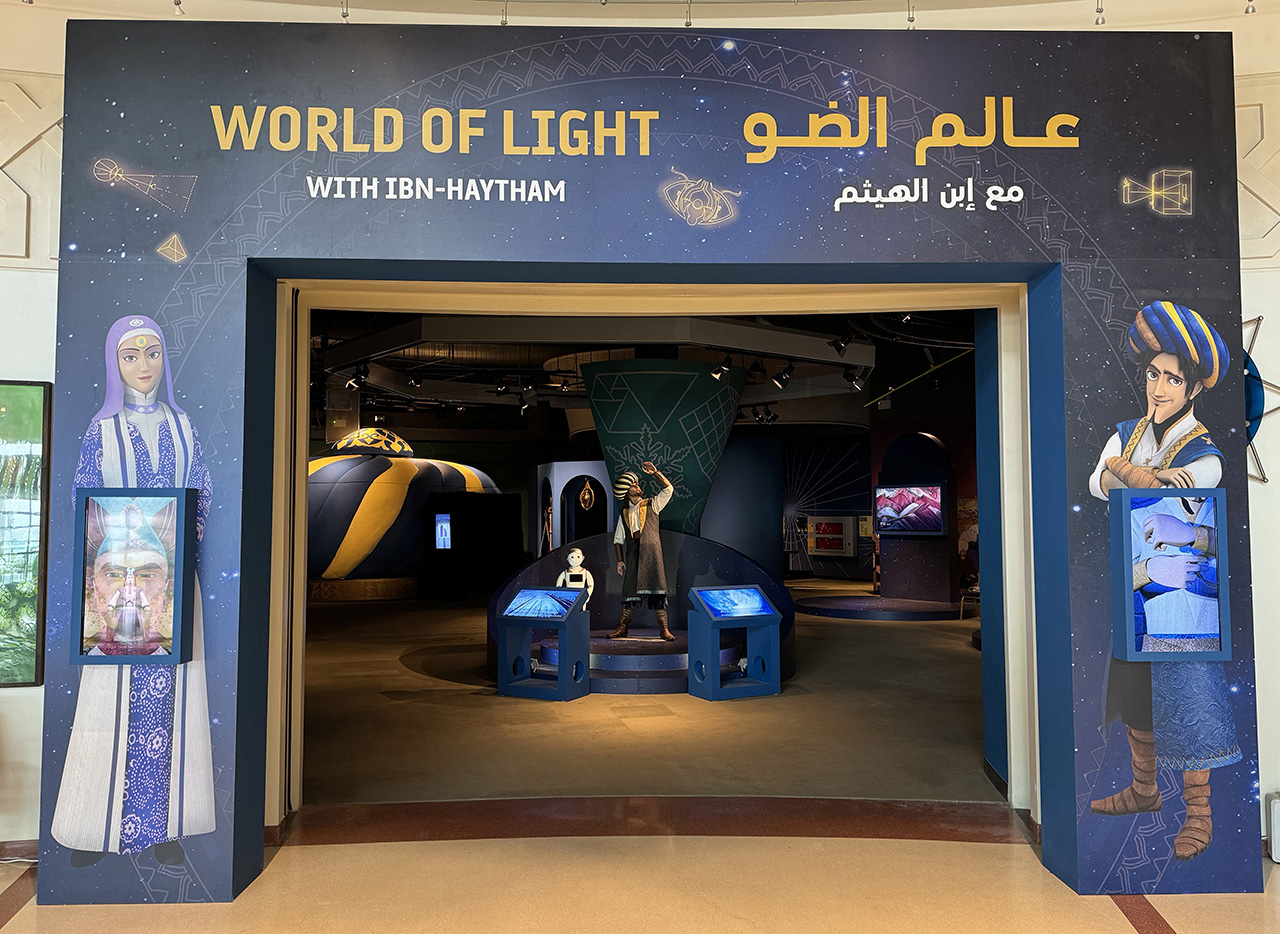
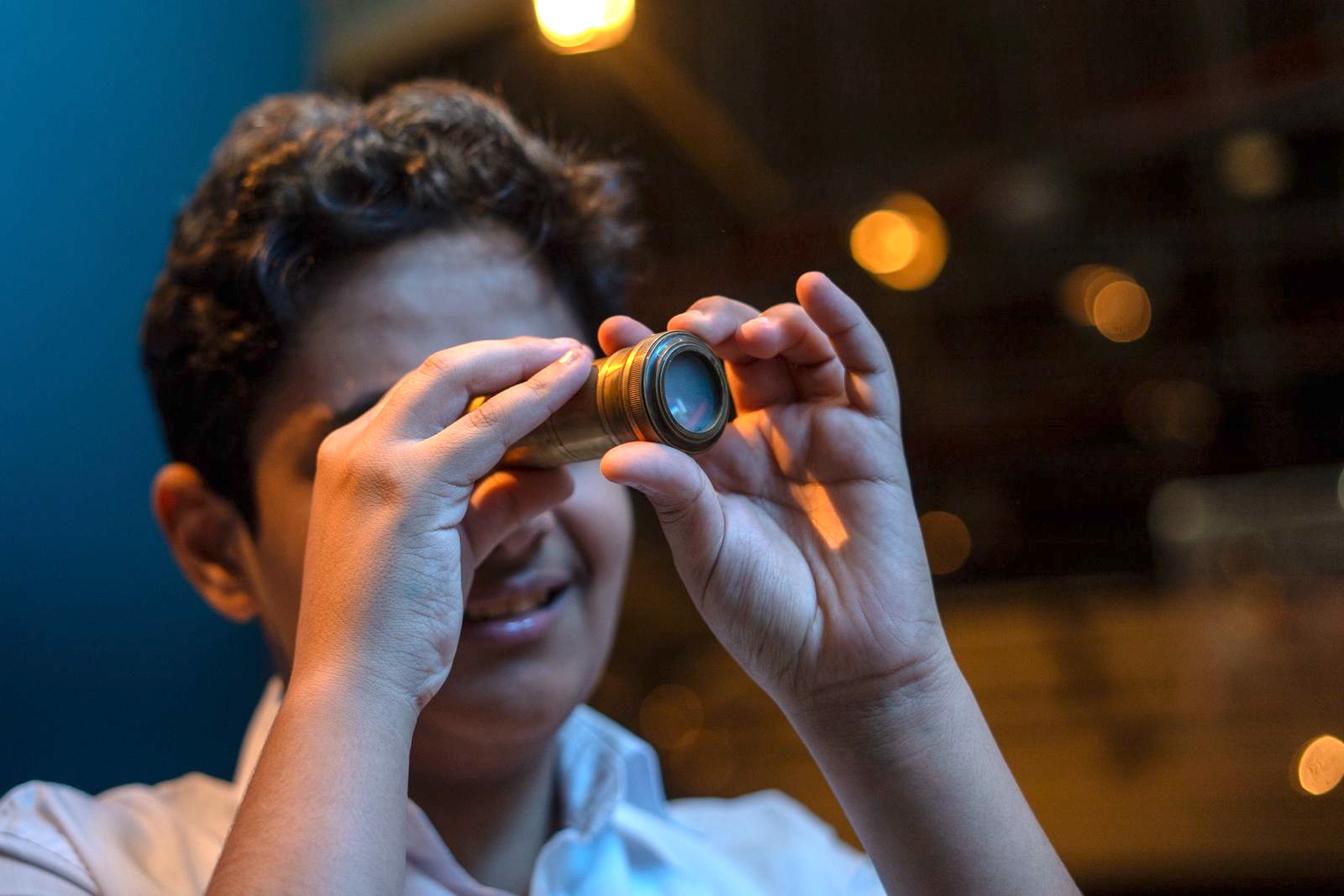
Who was Ibn Al-Haytham
Born around a thousand years ago in present-day Iraq, Al-Hasan Ibn al-Haytham (known in the West by the Latinised form of his first name, initially “Alhacen” and later “Alhazen”) was a pioneering scientific thinker who made important contributions to the understanding of vision, optics and light. His methodology of investigation, in particular using experiment to verify theory, shows certain similarities to what later became known as the modern scientific method. Through his Book of Optics (Kitab al-Manazir) and its Latin translation (De Aspectibus), his ideas influenced European scholars including those of the European Renaissance. Today, many consider him a pivotal figure in the history of optics and the “Father of modern Optics”.
Ibn al-Haytham was born during a creative period known as the golden age of Muslim civilisation that saw many fascinating advances in science, technology and medicine. In an area that spread from Spain to China, inspirational men and women, of different faiths and cultures, built upon knowledge of ancient civilisations, making discoveries that had a huge and often underappreciated impact on our world.
Ibn al-Haytham’s work was remarkable for its emphasis on proof and evidence. He is known to have said:
“If learning the truth is the scientist’s goal… then he must make himself the enemy of all that he reads…”
By this, he meant it was essential to conduct experiments to test what is written rather than blindly accepting it as true.
- Born in 965 in Basra, during the intellectual heyday of Muslim civilisation.
- Invited to Egypt to help build a dam on the Nile. After a field visit, he declined to proceed with the project causing him to end up in what we now call -protective custody for 10 years.
- From his observations of light entering a dark room, he made major breakthroughs in understanding light and vision.
- His discoveries led him to make significant revisions to ancient views about how our eyes see.
- Through his studies of earlier work by Galen and others, he gave names to several parts of the eye, such as the lens, the retina and the cornea.
- He set new standards in experimental science and completed his great Book of Optics sometime around 1027.
- He died at the age of 74 in around the year 1040.
- His Book of Optics was translated into Latin and had a significant influence on many scientists of the Middle Ages, Renaissance and Enlightenment. For example, the optics book Perspectiva was authored around 1275 by Erazmus Witelo, who later was called “Alhazen’s Ape” when people realised he had largely copied al-Haytham’s Book of Optics.


